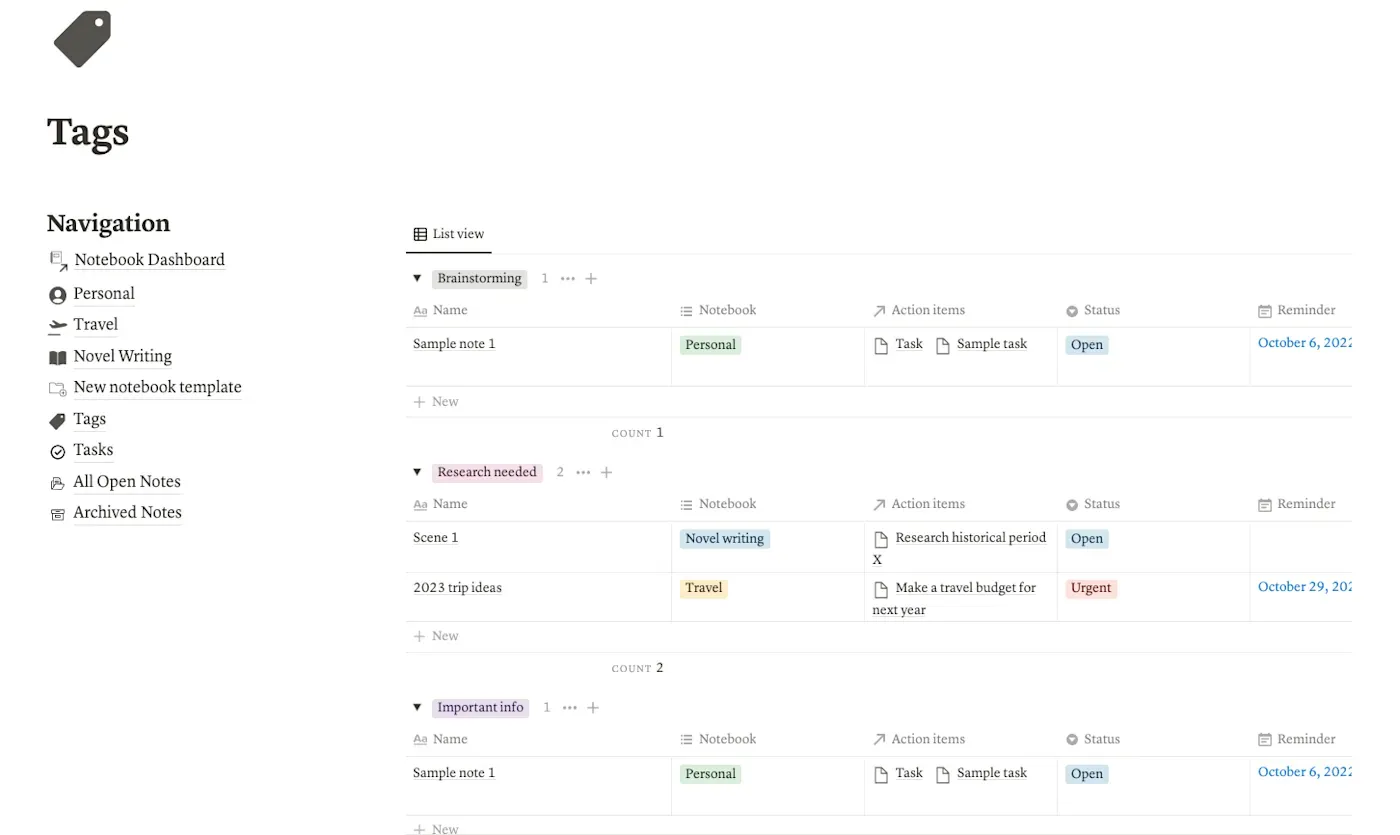Notion note-taking revolutionizes how we capture and organize our thoughts, making it one of the best note-taking apps available today. Unlike traditional note-taking applications, Notion combines the power of note organization tools with advanced productivity features, allowing for seamless integration across various tasks and projects. Users can create rich documents, manage tasks, and collaborate effectively, all within one platform. As I transitioned from Evernote to Notion, I discovered a more versatile approach to managing my notes, which enhanced my overall productivity. In this article, I’ll share my journey and insights comparing Notion vs Evernote, highlighting why Notion stands out in the realm of digital note-taking.
In the world of digital documentation, effective note-taking applications are essential for anyone looking to streamline their information management. Notion, as a comprehensive platform, offers an innovative solution that goes beyond simple note-taking; it serves as a powerful tool for project management and collaborative work. By integrating features that allow for organized content creation, users can enhance their workflow and efficiency. Whether you’re comparing Notion to alternatives like Standard Notes or Evernote, the versatility and functionality of Notion make it a frontrunner in the realm of productivity tools. This discussion will delve into the advantages of using Notion for capturing ideas, managing tasks, and optimizing your digital workspace.
The Rise of Notion as a Note-Taking Powerhouse
Notion has emerged as a leading player in the realm of note-taking applications, primarily due to its versatile features that extend beyond mere note-taking. Unlike traditional apps that focus solely on capturing text, Notion integrates project management capabilities, allowing users to organize their thoughts and tasks in a cohesive manner. This multifunctionality is particularly appealing to users looking for a comprehensive solution that encompasses various aspects of productivity, such as task management and collaborative workspaces.
Moreover, Notion’s design flexibility enables users to create customized layouts that suit their personal workflow. From bullet journals to kanban boards, the platform provides a plethora of templates that cater to diverse needs. This level of customization ensures that users can tailor their note-taking experience to align with their specific requirements, making Notion not just a note-taking app, but a productivity ecosystem.
Comparing Notion vs Evernote: What You Need to Know
While both Notion and Evernote are popular note-taking applications, they serve slightly different purposes. Evernote has long been recognized for its robust note creation features, including an exceptional search function and the ability to clip web pages directly into the app. However, its recent changes in pricing and limitations on features for free users have raised concerns among its loyal user base. In contrast, Notion presents a more holistic approach to note organization tools, allowing users to integrate their notes into a broader context of projects and workflows.
The migration process from Evernote to Notion is particularly noteworthy. Users can easily import their existing notes without losing formatting or metadata, which is a significant advantage for those with extensive Evernote libraries. This seamless transition highlights Notion’s commitment to user experience, making it an attractive alternative for those who have grown frustrated with Evernote’s recent developments.
Why I Chose Notion for Enhanced Productivity
One of the primary reasons I switched to Notion was its ability to enhance productivity through its unique features. Unlike Evernote, which focuses mainly on note-taking, Notion allows for the integration of tasks, databases, and collaborative projects all in one place. This means that I can not only jot down quick notes during meetings but also create detailed project plans or share documents with my team, all within the same application.
Additionally, Notion’s user-friendly interface and customizable options enable me to establish a workflow that suits my specific needs. By utilizing various templates and tools, I can organize my notes in a way that maximizes efficiency. This capability has made Notion my go-to application for all things related to note-taking and project management, solidifying its place as one of the best note-taking apps on the market.
Standard Notes Review: Is It Worth the Hype?
Standard Notes has gained attention as a privacy-focused alternative to mainstream note-taking applications. It boasts end-to-end encryption and a commitment to user security, making it an appealing choice for those concerned about data privacy. However, while it offers basic note-taking features and a straightforward interface, it lacks the extensive functionality that users may find in Notion or Evernote.
The challenge I encountered with Standard Notes was its import process from Evernote, which proved to be frustrating. Despite its claim of no note size limits, performance issues arose when dealing with larger notes, leading to a laggy experience. For users with extensive note collections, this could be a significant drawback, making Notion a more reliable choice for seamless transitions and optimal performance.
Exploring Notion’s Collaborative Features
Notion’s collaborative features set it apart from other note-taking apps, making it an ideal choice for teams and organizations. Users can share pages and workspaces with colleagues, allowing for real-time collaboration on projects and notes. This functionality is particularly beneficial for businesses that rely on effective communication and collaboration, as it keeps everyone on the same page.
Moreover, the ability to comment and tag team members within Notion adds an extra layer of interaction that enhances the collaborative experience. As teams increasingly shift towards remote work, having a tool that fosters collaboration and communication is essential, and Notion excels in this area by combining note-taking with project management seamlessly.
Transitioning from Evernote to Notion: My Experience
Transitioning from Evernote to Notion was a pivotal moment in my productivity journey. The process was remarkably straightforward, requiring only my Evernote credentials to initiate the import. Within hours, my extensive library of notes was seamlessly migrated to Notion without any loss of formatting or important metadata. This experience was a refreshing change from my earlier struggles with Standard Notes.
Notion’s ability to preserve the integrity of my notes during the migration process demonstrated its reliability as a note-taking solution. This transition not only alleviated my concerns about losing valuable information but also allowed me to explore the myriad of features that Notion offers, ultimately transforming how I manage my notes and projects.
The Future of Note-Taking with Notion
As the landscape of note-taking applications continues to evolve, Notion stands out as a frontrunner poised for future growth. Its unique blend of features, including project management tools and collaborative capabilities, positions it as a comprehensive solution for both personal and professional use. Users can expect continued updates and enhancements, making it a tool that adapts to their changing needs.
Moreover, Notion’s commitment to user feedback ensures that it remains relevant in a competitive market. As more individuals and teams recognize the benefits of an all-in-one platform for note-taking and productivity, Notion’s user base is likely to expand, solidifying its reputation as one of the best note-taking apps available today.
Maximizing Your Note Organization with Notion
Efficient note organization is crucial for maintaining productivity, and Notion excels in this area. Users can create a structured hierarchy of notes, making it easy to categorize and retrieve information when needed. The ability to create databases and link related notes further enhances the organization, allowing users to establish connections between different ideas and projects.
Additionally, Notion’s tagging system enables users to apply labels to their notes, facilitating quick searches and streamlined navigation. This level of organization not only helps in managing information effectively but also encourages users to maintain a clutter-free workspace, ultimately boosting overall productivity.
The Best Note-Taking Apps: Why Notion Leads the Pack
With a plethora of note-taking applications available, users often find themselves overwhelmed by choices. However, Notion clearly distinguishes itself as a leader among the best note-taking apps available today. Its combination of comprehensive features, user-friendly interface, and collaborative capabilities creates a powerful tool that meets the diverse needs of both individuals and teams.
While alternatives like Evernote and Standard Notes offer valuable features, they often fall short in areas such as customization and integration. Notion’s ability to adapt to different workflows and its continuous development make it a formidable competitor in the note-taking space, ensuring that users have access to the best tools for organization and productivity.
Frequently Asked Questions
How does Notion compare to Evernote for note-taking?
Notion is more than just a note-taking app; it combines project management and collaboration features that enhance productivity. Unlike Evernote, which excels in note creation and search, Notion allows for seamless integration of multimedia, task management, and wikis, making it a versatile tool for organizing notes and projects.
What are the advantages of using Notion over other note organization tools?
Notion offers a unique blend of note-taking and project management capabilities, allowing users to create interconnected documents and databases. Its extensive template library and customizable workspace make it stand out from traditional note organization tools like Evernote and Standard Notes.
Is Notion a good alternative to Evernote for productivity?
Yes, Notion is an excellent alternative to Evernote for productivity. It not only allows for robust note-taking but also facilitates project tracking, collaboration, and content creation, making it ideal for users looking to streamline their workflow.
Can I easily migrate my notes from Evernote to Notion?
Absolutely! Notion provides a straightforward import process for Evernote users. By simply entering your Evernote credentials, Notion can directly access and import your notes, preserving all formatting and metadata, which can save you time and effort.
What features make Notion the best note-taking app for my needs?
Notion’s flexibility is its greatest asset. It allows for multimedia notes, project management tools, and collaborative documents, making it suitable for a wide range of personal and professional uses. Its ability to serve as both a note-taking app and a productivity platform makes it a top choice.
How does the pricing of Notion compare to Evernote and Standard Notes?
Notion’s pricing is competitive with Evernote and Standard Notes, offering similar entry-level subscription costs. Notion, however, provides a free tier with extensive features, which can be sufficient for many users, allowing them to explore its capabilities without upfront costs.
What are the primary challenges of using Standard Notes compared to Notion?
While Standard Notes is focused on simplicity and security, it lacks the diverse features that Notion offers. Users may encounter challenges with note importation and performance issues with larger notes, whereas Notion provides a more comprehensive and user-friendly experience for managing extensive note collections.
Why should I choose Notion for note-taking and project management?
Choosing Notion means investing in a powerful all-in-one tool that enhances your note-taking while also allowing you to manage projects, collaborate with teams, and create structured content. Its versatility, along with a smooth import process from Evernote, makes it an ideal choice for users with extensive note collections.
Does Notion have templates for note-taking?
Yes, Notion offers thousands of free templates specifically designed for note-taking, project management, and more. These templates can help users quickly set up their workspace and organize their notes effectively.
What makes Notion’s note-taking capabilities superior to its competitors?
Notion’s note-taking capabilities are superior due to its integration of various content types, including text, images, links, and interactive elements. This allows users to create dynamic and engaging notes that go beyond simple text, making it a powerful tool for both personal and collaborative projects.
| Feature | Evernote | Standard Notes | Notion |
|---|---|---|---|
| Note Creation | Excellent with multiple input methods | Good but lacks some features | Very versatile with various document types |
| Search Functionality | Outstanding, includes OCR | Basic search capabilities | Comprehensive search and organization |
| Importing Notes | Direct import but slow | Failed during import process | Seamless and quick import from Evernote |
| Platform Support | iOS, Android, Web | iOS, Android, Web, Linux | iOS, Android, Web (no Linux client) |
| Pricing | Free plan with limited features | Free plan available, limited features | Free plan available, robust features |
Summary
Notion note-taking stands out as a comprehensive solution for organizing thoughts, projects, and tasks efficiently. After comparing various note-taking applications, I found that Notion’s ability to seamlessly import notes, combined with its extensive features, made it the ideal choice for managing my extensive collection of over 10,000 notes. The transition from Evernote and Standard Notes to Notion has not only improved my productivity but also provided me with a versatile platform that adapts to my needs.








